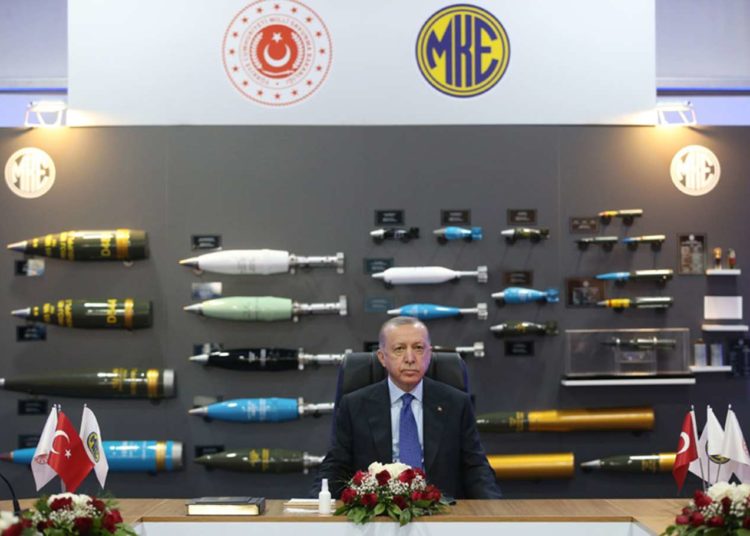Levent Kenez/Stockholm
According to Turkey’s 2021 export figures announced by the Turkish Exporters Assembly last week, Turkey’s arms sales reached a record level, with the biggest increase to African countries. Interestingly, defense industry exports to the United States also broke a new record, amounting to one-third of total exports in the sector despite the 2020 imposition of sanctions by the US on Turkey over the purchase of a Russian weapons system. The figures could be interpreted as the successful outcome of a strategy pursued by the government of President Recep Tayyip Erdoğan to make Africa a new arms market for Turkey as well as its aggressive marketing efforts for companies that belong to businesspeople close to him.
In the first 11 months of 2021, Turkey exported $2.793 billion worth of defense products, an increase of 39.7 percent compared to the same period of the previous year. The Turkish defense industry, which set an export record of $2.7 billion in 2019, is preparing to set a new record by closing this year with exports of more than $3 billion. For the first time the defense sector had a 1.8 percent share of Turkey’s total exports in November 2021.
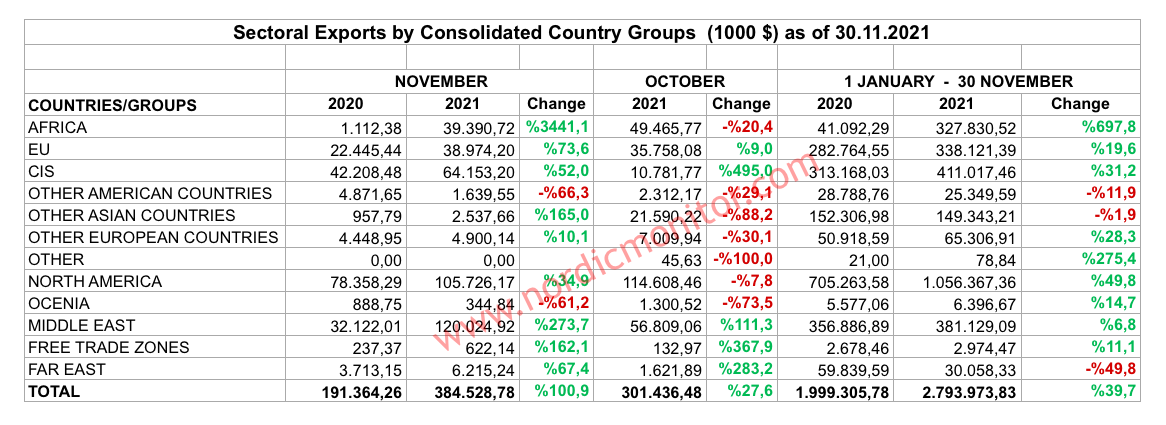 Another record rise is expected in arms sales to African countries. Compared to last year, Turkey increased its defense exports to the continent by 700 percent, in the first 11 months of 2021, from $41 million to $328 million. Africa, thus, ranks fifth in Turkey’s defense exports, following North America ($1.56 billion), the Commonwealth of Independent States ($411 million), the Middle East ($381.1 million) and European Union countries ($338 million). Experts predict that Africa may become the third largest market for Turkey’s arms sales in the near future.
Another record rise is expected in arms sales to African countries. Compared to last year, Turkey increased its defense exports to the continent by 700 percent, in the first 11 months of 2021, from $41 million to $328 million. Africa, thus, ranks fifth in Turkey’s defense exports, following North America ($1.56 billion), the Commonwealth of Independent States ($411 million), the Middle East ($381.1 million) and European Union countries ($338 million). Experts predict that Africa may become the third largest market for Turkey’s arms sales in the near future.
Nordic Monitor previously reported that Turkey has been looking for new markets in Africa for the defense industry, in which it has invested heavily in recent years. So far, Turkey has signed bilateral agreements with Tanzania, Sudan, Uganda, Benin and Côte d’Ivoire to cooperate in industrial production, procurement and maintenance of military and defense materiel as well as technical and logistical support, information sharing and research in the field, opening up new markets to Erdoğan’s defense conglomerates.
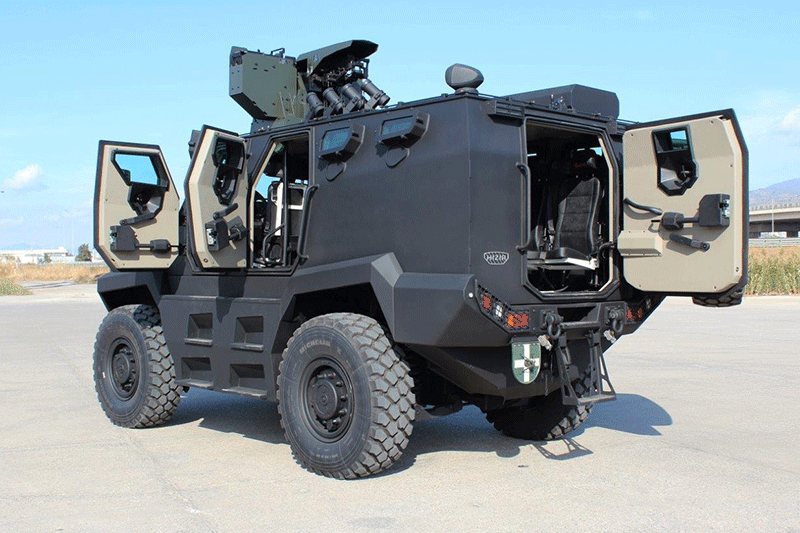
It was revealed in April that Morocco had signed a contract with Turkey for the acquisition of 13 Bayraktar TB2 unmanned combat aerial vehicles (UCAV) for MAD 626 million ($69.6 million). The agreement reportedly stipulates that Turkey will build four remote control ground stations and provide a configurable simulation system as well as a digital system for tracking and storing information.
Main defense industry products that Turkey sells to African countries:
Tunisia reportedly signed a contract with Turkish Aerospace Industries to buy three Anka-S Unmanned Aerial Vehicles (UAV) at a cost of $80 million. The deal also includes three ground control stations and the training of 52 Tunisian Air Force pilots and maintenance personnel in Turkey. It is estimated that the first drone will be delivered in August.
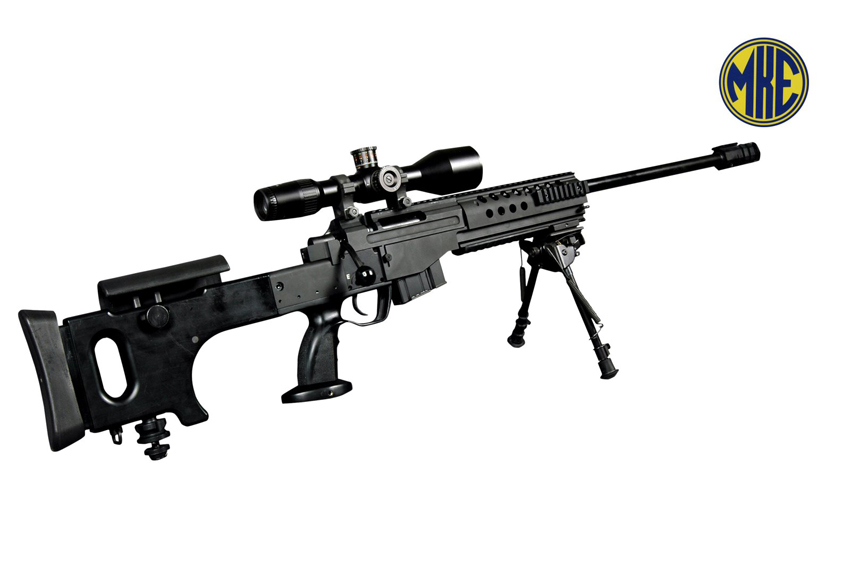
Turkey provided military support to Libya’s Government of National Accord (GNA) as well as to the allied militias that joined forces against General Khalifa Haftar’s Libyan National Army (LNA). The Turkish government deployed troops to Libya and moved jihadists from Syria’s Idlib region to the country in line with a security accord signed in November 2019 by President Erdoğan and Fayez al-Sarraj, former head of the UN-recognized GNA. It was rumored that the resignation of al-Sarraj last year was due to Erdoğan’s persistent demands for Turkish businessmen close to him.
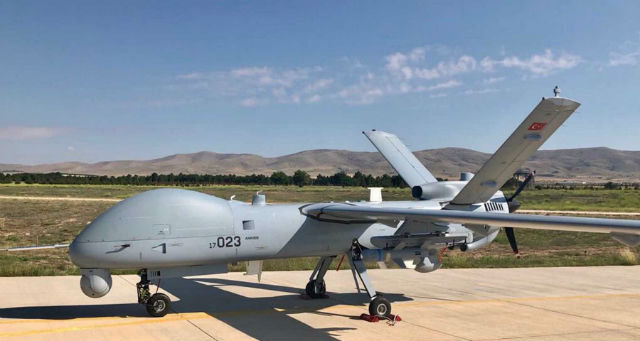
President Erdoğan’s interest in the defense industry is no secret. The fact that most of the companies operating in the sector are owned by businesspeople close to him is an important factor, as is the need for foreign exchange in the deteriorating economy.
Armored vehicle manufacturer BMC, which has a large share of exports in Turkey’s defense industry, also belongs to a close friend of Erdoğan. Ethem Sancak, a businessman in Erdoğan’s inner circle, bought all of BMC’s shares from the Savings Deposit Insurance Fund for only $300 million in 2014. The opposition said at the time that the sale was far below market value and that Erdoğan had gifted the company to a businessman close to him. It was also rumored that the real owner of the company was Erdoğan himself and that Sancak had been acting on his behalf. Interestingly, right after the acquisition, Sancak transferred only 49.9 percent of the company to the Qatari army for $300 million and became a partner of BMC with the Qataris. Sancak later sold 25.1 percent of his remaining shares to Talip Öztürk, a relative of Erdoğan. In June 2021 Fuat Tosyalı, another businessman from Erdoğan’s inner circle, bought all of Sancak and Öztürk’s shares, amounting to a 50.1 percent stake. The sales price was $480 million.
Turkey’s military drones, which have made a name for themselves in recent years in several battle zones such as Libya, Syria and Nagorno-Karabakh, are also produced by Erdoğan’s son-in-law, Selçuk Bayraktar.
After Turkey’s rapprochement with the United Arab Emirates, there are rumors that Turkey’s largest defense contractor, Aselsan, will be sold to the UAE in order to reduce the need for foreign currency.

